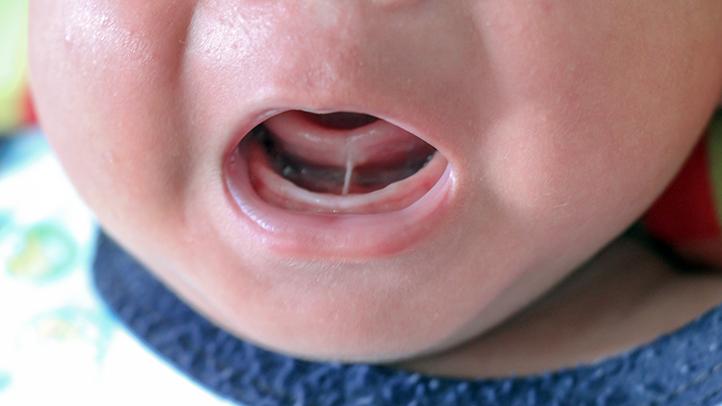Introduction
Maintaining oral hygiene in infants is a critical aspect of overall health and development, with specific attention often required for the delicate surfaces of a baby’s tongue. As the foundation for oral health, the tongue plays a significant role in feeding, taste development, and the prevention of oral thrush and other infections. While commercial oral hygiene products are widely available, many parents seek natural approaches to cleaning their baby’s tongue, motivated by a desire for gentler, non-invasive methods. This article explores a variety of home remedies that are both gentle and effective, supported by anecdotal evidence and emerging research. By examining these remedies—ranging from simple techniques using natural ingredients to specific tools designed for infant care—this discussion aims to equip parents with practical knowledge to promote their child’s oral health while minimizing exposure to harsh chemicals and additives commonly found in over-the-counter solutions. Through this exploration, we aim to foster a deeper understanding of infant oral hygiene practices, emphasizing the importance of early intervention in establishing lifelong habits.
Understanding the Importance of Oral Hygiene in Infants
Oral hygiene in infants is a critical component of overall health, as it lays the foundation for a lifetime of dental well-being. The early establishment of good oral care habits not only prevents the accumulation of harmful bacteria but also reduces the risk of tooth decay and gum disease. Residual milk and food particles can cling to a baby’s tongue, creating an environment conducive to bacterial growth. Thus, implementing a routine to clean the tongue is essential for ensuring optimal oral health in infants. Parents should be proactive in this process, educating themselves on the best practices and techniques to foster a healthy oral environment for their little ones.
There are several gentle and effective methods for cleaning an infant’s tongue that can be easily incorporated into daily routines. These include:
- Using a Soft Cloth: Dampening a clean, soft cloth and gently wiping the tongue can effectively remove residue without causing discomfort.
- Silicone Finger Brushes: These small brushes designed to fit over a parent’s finger allow for a gentle scrub of the tongue, making it an interactive experience for both parent and child.
- Homemade Solutions: A mixture of warm water and a tiny pinch of baking soda can serve as a mild cleaning agent, ensuring that no harmful chemicals are introduced.
It is crucial for caregivers to adopt a gentle approach to avoid distressing the infant. Regular tongue cleaning can not only minimize the risk of oral infections but also support the development of healthy eating habits as the child grows. To facilitate this practice, consider these key reminders:
| Practice | Frequency |
|---|---|
| Clean tongue with a cloth | Daily |
| Use finger brush | 2-3 times a week |
| Homemade cleaning solution | As needed |
Natural Ingredients for Safe and Effective Tongue Cleaning
When considering safe methods for cleaning a baby’s tongue, natural ingredients offer a gentle and effective approach. These ingredients not only minimize the risk of irritation but also promote overall oral health. Some of the most beneficial natural options include:
- Warm Water: A simple and effective solution for rinsing the tongue, warm water helps remove residue without any harshness.
- Coconut Oil: Known for its antimicrobial properties, coconut oil can be gently massaged onto the tongue, aiding in the reduction of bacteria.
- Chamomile Tea: This herbal infusion can be cooled and used as a soothing rinse to calm any irritation while cleansing.
- Honey: In small quantities, honey can be used for its natural antibacterial properties, but always ensure it is age-appropriate for your baby.
Utilizing these ingredients not only ensures safety but also fosters a healthy oral environment. Below is a comparison of these natural cleaning agents based on their properties:
| Ingredient | Benefits | How to Use |
|---|---|---|
| Warm Water | Gentle and hydrating | Rinse with a soft cloth |
| Coconut Oil | Antimicrobial | Massage onto the tongue |
| Chamomile Tea | Soothing | Cool and use as a rinse |
| Honey | Natural antibacterial | Apply sparingly |
Step-by-Step Guide to Gentle Tongue Cleaning Techniques
Cleaning your baby’s tongue is an essential part of their oral hygiene routine. Begin by gathering the necessary materials, which should include a soft, damp washcloth or a finger toothbrush, and perhaps a little warm water. Ensure that your hands are clean before proceeding. Gently wrap the washcloth or use the finger toothbrush to touch the back of your finger, which will help you get a better grip while cleaning. Once prepared, softly rub the surface of your baby’s tongue, using a back-and-forth motion. This will help remove any milk residue or bacteria present on their tongue without causing discomfort.
It’s important to keep the experience positive for your little one. To do this, consider incorporating a fun activity such as singing a song or playing a gentle game while you clean. This distraction can make the process feel less intimidating. After cleaning, rinse the washcloth thoroughly and ensure to dry your baby’s mouth gently with a soft towel. Regular cleaning—in a gentle manner—can contribute significantly to their oral health, making it an essential habit worth establishing early on.
When to Seek Professional Advice for Baby Oral Health
Maintaining optimal oral health for your baby is crucial, and while home remedies can be effective, there are times when professional advice becomes necessary. Parents should consider seeking guidance from a pediatric dentist or healthcare professional if they notice any of the following signs:
- Persistent Bad Breath: An occasional case is normal, but ongoing bad breath can indicate underlying issues.
- Visible Discoloration: If the tongue or gums appear discolored or show unusual spots, it’s advisable to consult a specialist.
- Difficulties During Feeding: If your baby struggles to latch during breastfeeding or refuses to eat, it might point to an oral health concern.
- Signs of Discomfort: Regular fussiness or discomfort while chewing or sucking could warrant expert evaluation.
Additionally, it’s important to establish a routine of professional check-ups to monitor your baby’s oral development. The following table outlines key milestones when a dental visit is recommended:
| Age | Action | Notes |
|---|---|---|
| 6 months | First dental visit | Introduction to oral hygiene practices. |
| 1 year | Check for tooth eruption | Monitor for signs of decay. |
| 2-3 years | Regular check-ups | Assess overall oral health. |
Q&A
Q&A: Home Remedies to Clean Baby Tongue: Gentle and Effective Methods
Q1: Why is it important to clean a baby’s tongue?
A1: Cleaning a baby’s tongue is essential for maintaining oral hygiene and preventing the buildup of bacteria and debris that can lead to conditions such as oral thrush and bad breath. Additionally, proper tongue cleaning can help in the development of healthy eating habits by promoting a more comfortable feeding experience.
Q2: At what age should parents start cleaning their baby’s tongue?
A2: Parents should begin cleaning their baby’s tongue as soon as the first teeth appear, typically around six months of age, or even earlier by gently wiping the tongue with a soft cloth or gauze after feedings. This practice helps establish a routine for oral hygiene as the child grows.
Q3: What are some effective home remedies to clean a baby’s tongue?
A3: Effective home remedies for cleaning a baby’s tongue include:
- Warm Water and Gauze: Dampen a piece of clean, soft gauze or a washcloth with warm water and gently wipe the tongue.
- Finger Brush: Use a silicone finger brush designed for infants to gently scrub the tongue and remove residue.
- Chamomile Tea: A cooled, diluted chamomile tea can be used to rinse the mouth, offering anti-inflammatory properties.
- Baking Soda Solution: A very diluted solution of baking soda in water can help neutralize acids and freshen breath when used sparingly.
Q4: Are there any materials or tools that are specifically recommended for tongue cleaning?
A4: It is recommended to use soft, non-abrasive materials, such as silicone finger brushes or soft washcloths. These tools are designed to be gentle on an infant’s sensitive gums and tongue. Avoid using hard or pointed items that could injure the soft tissues of the mouth.
Q5: What precautions should parents take when cleaning their baby’s tongue?
A5: Parents should ensure that their hands and any tools used are clean to avoid introducing bacteria. It is also important to be gentle and to avoid forcing the cleaning process, as this could cause discomfort or distress to the infant. If any signs of irritation or unusual symptoms appear, parents should consult a pediatrician.
Q6: How often should a baby’s tongue be cleaned?
A6: A baby’s tongue can be cleaned once a day, preferably after the last feeding, to remove any residual milk or food particles. As a child grows and begins to eat solid foods, this routine may be adjusted to twice a day or as recommended by a pediatric dentist.
Q7: When should parents consult a healthcare professional regarding their baby’s oral hygiene?
A7: Parents should consult a healthcare professional if they notice persistent white patches on the tongue, which may indicate oral thrush, or if the baby exhibits signs of discomfort, such as excessive drooling or refusal to feed. Regular pediatric dental check-ups are also advisable as the child grows.
Q8: Are there any common misconceptions about cleaning a baby’s tongue?
A8: A common misconception is that cleaning a baby’s tongue is unnecessary if they are still breastfeeding or formula-feeding. However, even in these cases, removing excess milk residue is crucial for preventing bacterial buildup. Another misconception is that scrubbing hard is required; in reality, gentle wiping is sufficient and recommended.
This Q&A provides insight into the significance and methodology of cleaning an infant’s tongue, promoting their overall oral health while dispelling common misconceptions surrounding the practice.
Key Takeaways
maintaining oral hygiene in infants is a vital aspect of their overall health and development, and cleaning the baby’s tongue plays a significant role in this process. The home remedies discussed in this article—ranging from the use of soft cloths to natural solutions like coconut oil—are not only gentle but also effective in ensuring a clean and healthy oral environment. Parents and caregivers are encouraged to approach these methods with care and consistency, recognizing the importance of establishing good habits early in a child’s life. While these home remedies can be beneficial, it is imperative to remain vigilant about any signs of discomfort or unusual symptoms in the child’s mouth, necessitating consultation with a pediatric healthcare professional. By fostering good oral hygiene practices from infancy, we set the foundation for a lifetime of healthy dental habits and overall well-being.


